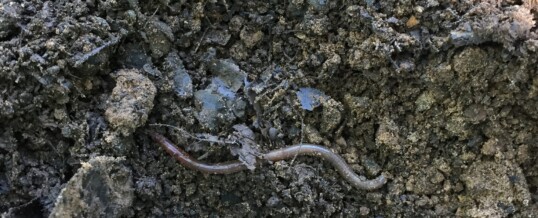
I’ve always worked at least two, sometimes three jobs. My dad said it built character. Maybe so, but what I noticed was that it built my bank account.
In 1972 when I was 11, I began mowing yards, raking leaves, or doing anything else that paid. There were plenty of elderly folks in my hometown who were no longer able to do this type of work, and I was only too glad to help them.
That same year a man in my hometown hired me for $1 a day to help him in his bait shop.
Mr. Bill (I don’t think I ever knew his last name) was a jack-of-all-trades. In addition to growing worms and raising minnows, he also made the signs for the local grocery stores that hung in the windows and advertised the weekly specials.
While I broke up the dirt in the worm beds and ground the cornmeal to feed them, Mr. Bill would pull a piece of butcher paper and tear it off from the roll that hung on the wall, and then free hand the name of the item for sale in one color and its price in another.
As I ran the loud grinder for the cornmeal, I’d watch him finish one sign, hang it up to dry, and begin another.
Every now and then he’d yell out to me, telling me to use less meal to feed the worms, or to remind me to mist the beds with water before feeding them.
All of this came back to me as my wife and I recently discovered hundreds of earthworms in our concrete gutters that we installed at the top of our two driveways.
Our property is a rectangle, but from front to back, it’s shaped like a bowl. We installed the concrete drains to catch and redirect the runoff during heavy rains.
When we bought the property, we noticed that when it rained hard, our driveways turned into Niagara Falls. In turn, the water ran through the yard and washed away just about anything in its path.
We hired lots of folks who said they could fix the problem, but it was my idea to install the concrete gutters, deep into the ground and top them with metal grates.
I remembered a design I’d seen as a kid. At the top of the driveway, a deep concrete gutter ran the width of the drive, and removable metal grates covered them.
The runoff ran into drainage ditches, which went into a creek.
I hired a fella to build the same thing.
The first rain came, and it worked great. So did the second, and the third.
But by the fourth heavy rain, we noticed the dirt from the runoff had filled the concrete gutters and was coming up through the grates.
I pulled a shooter shovel from the garage and began to scoop out the dirt into a wheelbarrow. My intention was to use this fertile soil in my wife’s garden.
There was only one problem. We had guests. They had moved into the gutters and were now calling them home.
Worms. Earthworms. Lots of them.
The loose, black soil and the cool, underground concrete gutters provided the perfect domicile for one of the earth’s most basic creatures.
These round, segmented organisms eat, digest, and redistribute things that help farmers and gardeners grow food.
They also provide food for pigs and other farm animals.
Of course, fishermen rely on them to catch what they need to fill their freezers.
Which brings me to the next part of this story.
My wife mentioned that a friend of ours at the end of the street buys worms for fishing – and that they were expensive.
“Call him,” I said.
He and his wife arrived and took about half of the worms and headed back home.
The rest of the worms went into my wife’s gardens.
But the wheels in my old noggin started turning.
What had started out as a drainage problem has turned into a business opportunity. I currently only have a couple of jobs, so I have an opening for another one. One that I first learned at age 11.
I’m going to call it, “John’s Grate Bait.”
©2020 John Moore
John’s books, Write of Passage: A Southerner’s View of Then and Now Vol. 1 and Vol. 2, are available on Amazon and on John’s website at www.TheCountryWriter.com. His weekly John G. Moore Podcast appears on Spotify and iTunes.
MAY
2020
